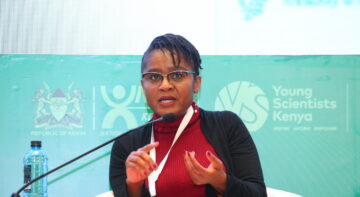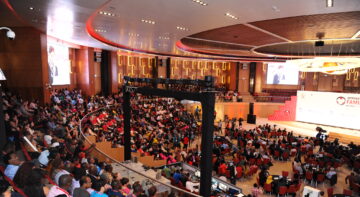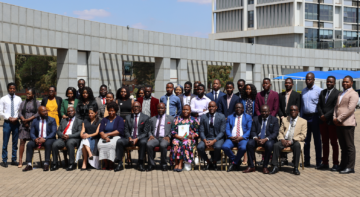Blogs

For evidence to drive sustainable development in Africa, there is need to build and/or expand leadership for evidence-informed decision-making (EIDM) in the region. To expand this leadership, it is critical that more scientists across the continent are brought on board to champion use of evidence within government agencies.
With the aim to empower scholars to proactively engage governments to use science and innovation, as well as champion EIDM, AFIDEP and the African Academy of Sciences (AAS) with funding from the William and Flora Hewlett Foundation have been implementing a two-year project dubbed Evidence Leaders in Africa (ELA).
The project has been working with the AAS network of leading, mid-career and upcoming scientists across East and West Africa to generate evidence and innovation needed to drive sustainable development. Often, scientists place emphasis on production and promotion of their own research and rarely on research uptake efforts to ensure that whatever evidence they produce is used to inform policy and program decisions. The partnership will see to it that scientist involved in the project initiatives, go beyond promoting the use of their own research, to play a leading role in promoting and supporting entrenchment of an EIDM culture in their countries.
As a climax of the project’s efforts to promote an EIDM culture in government, AFIDEP and AAS held a two-day virtual lesson sharing conference on 3 – 4 November 2020. Themed “Strengthening the think tank role of researchers in supporting government decision-making for better development outcomes,” the conference facilitated sharing of lessons on use of research to inform decision-making among researchers. The conference generated valuable discussions among scientists across Africa on what role they could play in getting their research to play a bigger role in informing policy and decisions, and ultimately driving sustainable development.
Some key discussions held at the conference were on how scientists can improve their role in engaging government to take up research including the need for researchers to address information needs of policy-makers and generate applicable evidence; the importance of researchers to articulate their findings in a manner easily understandable to non-scholars; the need for them to prioritize learning from the EIDM efforts as well as the need to have networks and synergy between researchers and policy makers.
Other key lessons from the conference include:
- It is critical to facilitate early discussions with policy-makers, about the future use of research results, and build mutual understanding on the policy-relevant questions for research and the kind of evidence needed to answer them.
- The importance of strengthening the role of linking research to policy influence as researchers.
- The pivotal role that universities and other higher learning institutions have in nurturing and maintaining research.
- There is need for researchers to identify creative ways to engage governments on their research so that this is considered in policy and program decisions.
- Promote the use of guidelines and other tools to promote evidence-use within government agencies
- Research should also be guided by the needs of the society as they are the end users of the research.
Related Posts





